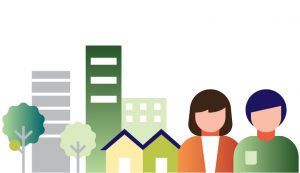Social Well-Being
The Board set directions and policies concerning social
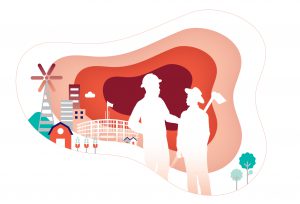
Management Approach
IRPC have established and implemented the CSR strategies, stipulating that amount of investments in CSR projects must be equal to 3% of average net profit from the past three years. Because IRPC has considered community as one of important stakeholders, IRPC is strongly eager to drive sustainable development as well as to enhance well-being of communities, surrounding IRPC Industrial Zone. With this intention, IRPC has conducted CSR projects that are categorized into three types: community projects, educational projects, and social development projects. Four main objectives for conducting CSR projects include 1) strengthening the relationship between community members, between members of particular community and member of another community, as well as between community members and IRPC, 2) creating social benefits that aims to serve needs of community and solve problems in community, 3) communicating the right information about IRPC to community in order to build a positive viewpoint and to build community trust, and 4) maintaining social acceptance as well as Social License to Operate (SL2O).

IRPC categorizes CSR programs into 3 themes; include building sustainable environment, improving education and strengthening community. IRPC develops its CSR projects in alignment with UN Sustainable Development Goals (UN SDGs) and Business Drivers in order to leverage the strength of its business and society. Main SDGs that IRPC adheres to for implementation of CSR projects consist of Goal number 3. Good Health and Well Being, 4. Quality Education, and 13. Climate Action
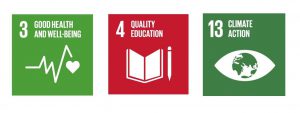
1. Policy
The Board set directions and policies concerning social responsibilities, while having Corporate Social Responsibility (CSR) strategic campaigns included in IRPC’s five-year strategy. An emphasis is placed on value co-creation between IRPC and stakeholders, which is respected as guidelines for the management and staff as well as subsidiaries in doing their CSR projects.The guidelines can be summarized as follows:
- Basing business conduct on corporate governance with a focus on integrity, fairness, transparency, and accountability, taking into account the benefit for stakeholders as well as fair treatment for all stakeholders.
- Conducting the business with fairness, avoiding any action that may trigger conflicts of interest, while promoting free trade without infringement on intellectual property or copyright. IRPC promotes anti-corruption and anti-graft by establishing an efficient whistleblowing process together with anti-corruption risk assessment, under which risks from doing CSR projects are included.
- Respecting the internationally accepted human rights principle, the foundation for human resource development as well as treatment for customers and business partners.
- Taking responsibilities for consumers through control, development, and improvement of safety standards of products and services. IRPC provides accurate and sufficient information for consumers. However, it keeps consumers’ data confidential, except with prior permission from the consumer to disclose such information.
- Engaging in social and community development. Examinations, corrections, and improvements are encouraged to prevent the business or projects from producing negative impacts, directly or indirectly, on communities and society. Support is also given to projects or activities intended for the benefit of society or the environment by making use of skills, knowledge, and resources within the organization.
- Taking care of the environment through appropriate environmental management with regular monitoring and assessment. Promotion is given to efficient use of resources with standard energy-saving method, reuse of resources, development of products and services without environmental impacts but are safe for use. Emergency response is prepared for dealing with potential environmental problems.
- Doing an innovative business that can not only provide benefit, while raising competitiveness and value for IRPC, but can also benefit target groups, such as innovation in plastic products with anti-bacterial agents, which are good for consumers’ hygiene.
- Making social and environmental reports under internationally accepted formats, and disclosing information regarding society and the environment to all stakeholders. IRPC assigns leaders of all business groups to give cooperation and encourage staff to drive this policy to success.
2. Management System/Process
IRPC has implemented CSR strategies with the intention to guide how IRPC conducts CSR projects. Focus areas of CSR projects are, for example, building sustainable environment, improving education and strengthening community. All of these have been thoroughly analyzed and defined as materiality for IRPC, which need IRPC to promptly address. Each matter is prioritized based on the importance and urgency, which would be used as guidance for corporate citizenship and philanthropic activities.
Identification of Community Needs and Problems

In order to ensure that well-being of communities is flourished and thrived, IRPC always prioritizes and applies community needs and problems for development CSR projects, enabling IRPC to conduct CSR projects in all IRPC operations (100% of operations). In general, IRPC realizes community needs and problems through engagement activities with communities surrounding IRPC Industrial Zone (i.e. 5 km. radius of the industrial park), especially public consultation during preparation of Environmental Impact Assessment (EIA) report. Another important engagement activity that provides IRPC insights about communities is regular meeting with representative of community members, where all community members, including elders and children are welcome and encouraged to express their needs and problems.
In addition to aforementioned activities, IRPC realizes community needs and problems through grievance mechanism, and activities conducted to address impacts from IRPC operations. IRPC has assigned the Emergency Control Center to immediately engage with community and remediate impacts that community faces.
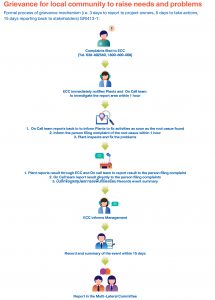
Further information regarding EIA report (i.e. stakeholder engagement and stakeholder mapping) is available in Environmental Impact Assessment and Monitoring Result
IRPC’s Corporate Social Responsibility Strategy

IRPC has led CSR projects in 2020 through categorizing projects into 3 types: 1) Community projects, 2) Educational projects, and 3) Social development projects.
Topic |
Alignment with Business, Social, and Environmental Targets |
Examples of Selected CSR Projects |
Educational Projects
|
IRPC values the importance of a good education, and has supported educational development projects to create quality individuals for the country. | Academic Scholarships: IRPC supports educational attainment for students from distant communities to ensure that quality education is attainable even for children living in rural areas. It is our hope that these children will apply what they learn to lead development in their communities as well. IRPC awards academic scholarships for primary school student, secondary school students, and university students.
Social Benefit:
Business Benefit:
|
Social Development Projects
|
IRPC collaborates with various agencies to organize projects to enhance community livelihoods. IRPC upholds the principles of the Philosophy of Sufficiency Economy (PSE) in all our projects. | Lam Sai Yong Model aims to enhance the potential of agricultural community to address water scarcity and elevate the living quality of agricultural communities in remote area through building wells to secure water supply, becoming the strong foundation in Thai agricultural sector. The success of Lam Sai Yong Model in Lam Sai Yong, Nang Rong, Buriram, has resulting replication and implementation in Uttaradit and Sisaket.
Social Benefit:
Business Benefit:
|
Community Projects
|
IRPC is determined to develop its products and services to be environmentally friendly and to increase health and safety for the betterment of customers’ livelihoods. | Community Health Funds for Areas Surrounding the Operation IRPC has supported the health and growth of communities in Rayong Province through initiating a variety of health projects and funds in different communities.
Social Benefit:
Business Benefit:
|
Performance
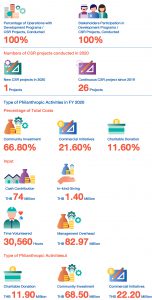



 Live Stream
Live Stream

